Confidentiality in the workplace is essential across different kinds of jobs. If your position lets you have clients’ confidential information, you must protect it.
Your career relies on your ability to protect any confidentiality in the workplace.
Significance Of Confidentiality In The Workplace – 5 Types Of Information
Confidentiality is important because if you fail to protect the confidentiality, you will lose trust in your employer or client’s eyes.
You might also have to face legal actions that they may take against you.
It’s a breach of confidentiality when the information gets disclosed without the consent of the owner.
One can do it intentionally, or sometimes it happens unknowingly. Here you can see what kind of information is confidential and ways to protect it.
1. Individual Details Of Every Member
You’ll get to hear the information about individuals in the workplace during your job. Not all this information is important; it might be gossips or some other information.
You’d come across more critical information if you belong to human resource management,
If you hear any information of someone’s name, identity, address, you must not disclose it.
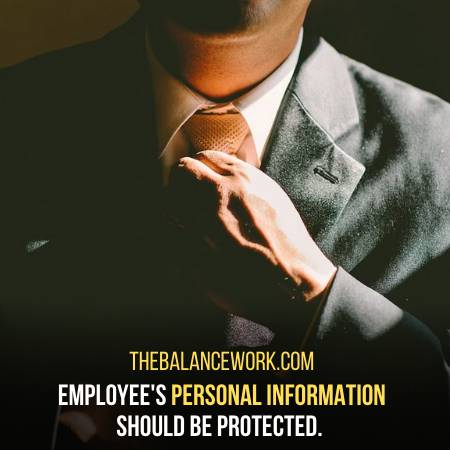
Information collected under interviews like ethnicity and disabilities also falls in this category.
In some countries, such information gets protected by laws. If you do anything against that law, you’d be liable and might face prosecution.
2. Confidentiality In The Workplace – Administrative Statistics
Managerial information involves all the information related to individuals. It can be either disciplinary actions or management decisions.
Anything related to employees comes in the category of management information.
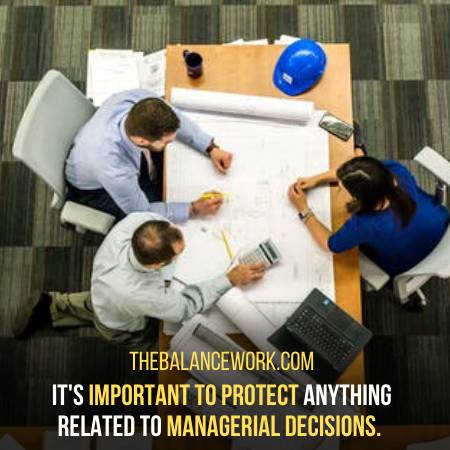
Managerial information might become public as per management’s will. Like planned layoffs will get announced at some time.
However, the other information remains confidential for a long time.
3. Data Related To Clients
A customer’s data is accessible by the organization the very moment it affiliates to them.
The organization is responsible for protecting this information. But that customer information is also protected under the “trade secrets.”
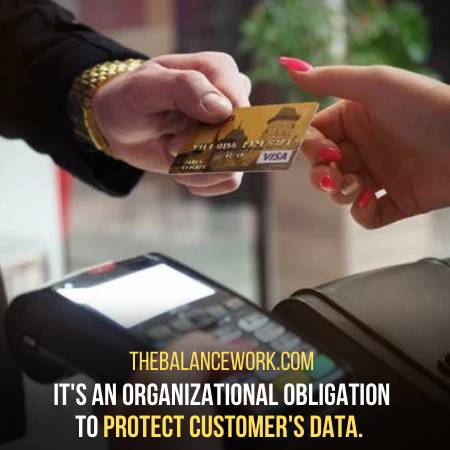
The data protection law in different countries varies. It means different countries deal with customer information in different ways.
If you think that your information as a customer is under threat, seek legal advice.
4. Occupational Data Of Clients – Confidentiality In The Workplace
Some certain professions come to know about the details of individuals or organizations.
These are doctors, lawyers, or a recruiter that get this information by their occupation.
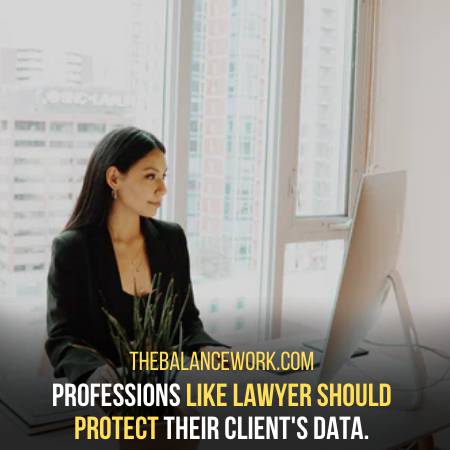
Doctors know the details of their patients, and lawyers are aware of customer’s cases. Accountants know about the tax details of their customers.
Although a professional’s code of conduct protects this information, there are some laws.
5. Company Details – The Top Secret
It’s also called business information or trade secrets. Organizational information also involves anything that isn’t in the public domain.

Also, anything that makes the organization do its work in a better way is under this category.
All the information about industrial processes, costs, budgets lies in this category.
Confidentiality In The Workplace – Legal VS Casual
There are some casual expectations of confidentiality, and then there are some laws. It needs to draw a distinct line between these two.
You might be got told some information and asked to keep it a secret. You aren’t legally obliged to do so, but it’s a personal obligation expected from you.
For instance, a coworker tells you about her pregnancy and doesn’t want to tell anyone else. She might have a reason for doing so.
But she told you because she considered you a friend. Now there’s no legal obligation on you, but you’ll break her trust if you tell someone.
Your reputation as a trusted person in her eyes would go away.
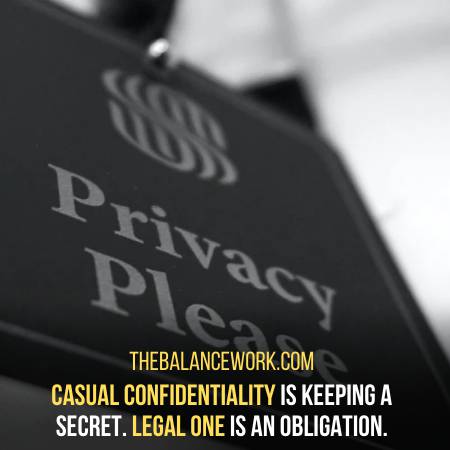
There is information that can’t get shared with anyone unless specific circumstances.
For instance, you have to sell a customer’s list to another organization. You can do that only if you have the consent of the customers.
You might get sued for disclosing information that is secretive to your employer. Information about employees is confidential when it’s not in the public domain.
Protecting Confidentiality In The Workplace – 5 Ways
You might breach confidentiality in the workplace without even being aware of it. So here are some ways to protect yourself and your livelihood from any breach.
1. Shed Some Light On Your Boundaries
Talk clearly to your client and let him know what kind of information you’ll have access to.
Also, tell the client about how you will use this information. Share any situation under which it will be necessary to share their knowledge.

You can do that by writing it in a contract.
2. Data is Fragile – Handle With Care
One right way is to treat your data carefully. You don’t need to store information for so long if you don’t need it in the future.
Make sure that your computer has a proper security and compliance system.
You can install security software for additional security. Make sure to protect data at any cost, because you can’t afford its loss.
3. Keep These Things Inside The Box
You shouldn’t talk about clients’ professional information out of the office.
However, if you have to share information with someone, make sure you and your client know about it.
Let your client know when and under what circumstances you’ll be sharing his information.
4. Behave Like You’re On A Secret Mission – Confidentiality In The Workplace
Employees must stay careful too. Before they leave for home, they should clear their desk. And make sure there isn’t any confidential information.
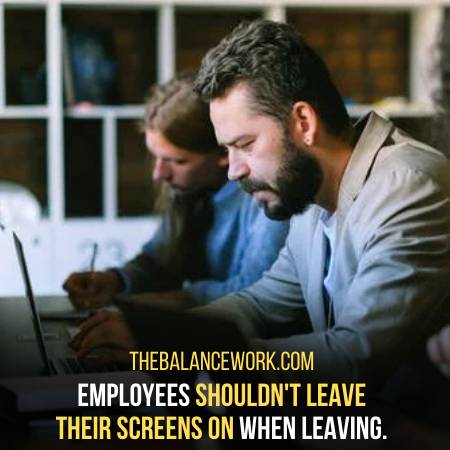
Employees should also refrain from leaving any information visible on their monitors.
It’s also advisable not to send any sensitive information through mails, as it can get hacked.
5. Clean Out Everything After Your Supersecret Mission
The confidential information needs to get dealt with utmost care. For instance, if you print out something on paper, make sure to discard it properly.
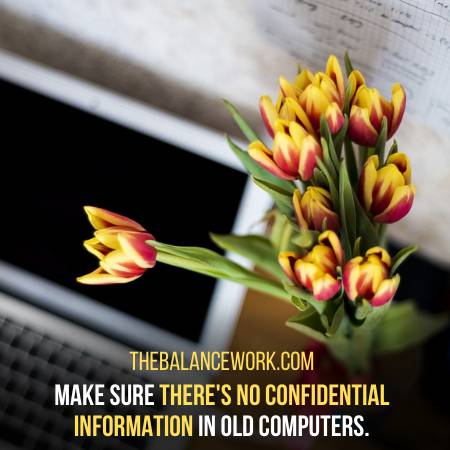
Before disposing of a computer, use software to wipe out confidential data.
It’s also preferable to protect the data via firewalls, encryption, or passwords.
Frequently Asked Questions
How Do You Maintain Confidentiality In The Workplace?
You can protect your information by adequately labeling the information as confidential. Also, adding enclosure provisions in the agreements would be helpful. As an organization, you can add confidentiality policies in the employee handbook.
What Are The Basic Principles Of Confidentiality?
The principle of confidentiality says to protect someone's interest in their wish. It means that employees should avoid sharing other's information. Until and unless the other person agrees, you can't disclose their information.
What Is A Violation Of Confidentiality?
The violation or breach of confidentiality is to share someone's information without their consent. It can be oral, written, or during a meeting between the parties.
Can You Get Fired For Sharing Confidential Information?
The penalty for sharing confidential information can end employment. It happens when the employee signs a personal agreement before starting the job. However, if the employee didn't sign any such agreement; he can still get terminated.
Conclusion
You can protect Confidentiality in the workplace by either common sense or professional standards.
You should protect the information of a person who doesn’t want it to disclose to the public. However, if you fail to do so by mistake or intentionally, then what to do?
A breach of confidentiality can happen to anyone. If you come across such situations, you should stay honest. Be honest to tell your boss that you did it by mistake so that he can take preventive measures.
Contact your legal representative and ask for advice.
Leave a comment in the comment section to share your thoughts on this.
Last Updated on 2 years ago by Assma Riaz
- 7 Great Signs Your Boss Wants to Help You - October 8, 2023
- How To Explain Dropping Out Of Law School? Detailed Guide - September 6, 2023
- 10 Reasons Employees Get Fired in Workplace - August 27, 2023